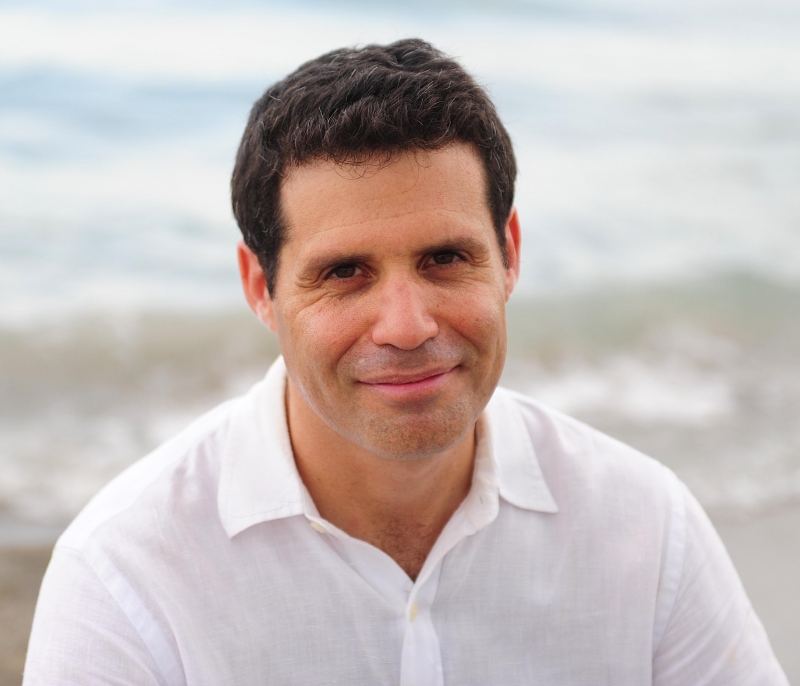Setting a Realistic Resolution
Setting a Realistic Resolution

We have our Jewish New Year, Rosh Hashanah, but it is hard not to have a sense of new beginnings on January 1st, and for some of us it means making New Year resolutions. It is tempting to envision a year in which we become a better version of ourselves. At the planning phase, we tend to underestimate the measures needed to achieve our goals. But, a short time after we start, the enthusiasm ebbs and so does our determination to keep up the hard work. It is not surprising that most resolutions fail, and many don’t even make it to the end of January.
Yet as Jews, we don’t just believe in our ability to change, we see it as a virtuous path. The Mishna tells about a person who came to Hillel asking to convert to Judaism on the condition that the rabbi would teach him the entire Torah while standing on one foot. The idea sounds ridiculous, but don’t we do the same with our New Year resolutions? We want it all and fast: to go back to our pre-pandemic weight, eat healthier, exercise, read more books and watch less TV, spend more time with those we care about, and so much more. In the story, Hillel, in contrast to his colleague, Shamai, was not angry with the man. He accepted the challenge. But, instead of throwing hundreds of laws at him, he gave him only one rule—“That which is hateful unto you, do not do to your neighbor”—and told him that only after he masters it should he come back for more. I don’t think that Hillel’s emphasis was on the specific rule, as beautiful as it is, as it was on the idea that for a successful transformation, one must start with only one item that is doable and meaningful. Trying to do more may lead to failure and abandonment of the whole endeavor.
You might be convinced that you should begin by focusing on one resolution, but how can you identify the right one? Paulo Coelho tells the following story:
The master was strolling through a field of wheat when a disciple came up to him: “I can’t tell which is the true path. What’s the secret?”
“What does that ring on your right hand mean?” asked the master.
“My father gave it to me before dying.”
“Well, give it to me.”
The disciple obeyed, and the master tossed the ring into the middle of the field of wheat.
“Now what?” shouted the disciple. “Now I have to stop doing everything I was doing to look for the ring! It’s important to me!”
“When you find it, remember this: you yourself answered the question you asked me. That is how you tell the true path: it is more important than all the rest.”
Before you commit yourself to a new path for the next year, first take the time to find out what is most important to you, not to someone else. Then remember not to make it too vague and to have a realistic plan for achieving your resolution. I believe that when we find the right path and work hard to stay on it, God will be by our side.
Have a good 2022!
Thu, July 31 2025
6 Av 5785
Upcoming Events
-
Thursday ,
JulJuly 31 , 2025TODDLER ENRICHMENT PROGRAM
Thursday, Jul 31st 10:00a to 11:15a
-
Thursday ,
JulJuly 31 , 2025Canasta
Thursday, Jul 31st 1:00p to 3:00p
-
Friday ,
AugAugust 1 , 2025TODDLER ENRICHMENT PROGRAM
Friday, Aug 1st 10:00a to 11:15a
-
Friday ,
AugAugust 1 , 2025Shabbat Service
Friday, Aug 1st 6:30p to 7:30p
-
Wednesday ,
AugAugust 6 , 2025Mah Jongg
Wednesday, Aug 6th 1:00p to 3:00p
-
Thursday ,
AugAugust 7 , 2025Canasta
Thursday, Aug 7th 1:00p to 3:00p
-
Friday ,
AugAugust 8 , 2025Shabbat Service
Friday, Aug 8th 6:30p to 7:30p
-
Saturday ,
AugAugust 9 , 2025Men's Club Summer Dinners at Cafe Sole
Shabbat, Aug 9th 6:30p to 7:30p
-
Monday ,
AugAugust 11 , 2025BOOK CLUB - THE OVERSTORY - Richard Powers
Monday, Aug 11th 10:30a to 12:00p
-
Wednesday ,
AugAugust 13 , 2025Mah Jongg
Wednesday, Aug 13th 1:00p to 3:00p
Update this content.
Come Together
Something meaningful and dynamic is happening here at Temple Beth Am. It springs from the warmth of our welcome and the energy of our actions. We call it: Kulanu - All of Us Together.
Join UsUpcoming Events
-
Thursday ,
JulJuly 31 , 2025TODDLER ENRICHMENT PROGRAM
Thursday, Jul 31st 10:00a to 11:15a
-
Thursday ,
JulJuly 31 , 2025Canasta
Thursday, Jul 31st 1:00p to 3:00p
-
Friday ,
AugAugust 1 , 2025TODDLER ENRICHMENT PROGRAM
Friday, Aug 1st 10:00a to 11:15a
-
Friday ,
AugAugust 1 , 2025Shabbat Service
Friday, Aug 1st 6:30p to 7:30p
-
Wednesday ,
AugAugust 6 , 2025Mah Jongg
Wednesday, Aug 6th 1:00p to 3:00p
Privacy Settings | Privacy Policy | Member Terms
©2025 All rights reserved. Find out more about ShulCloud

